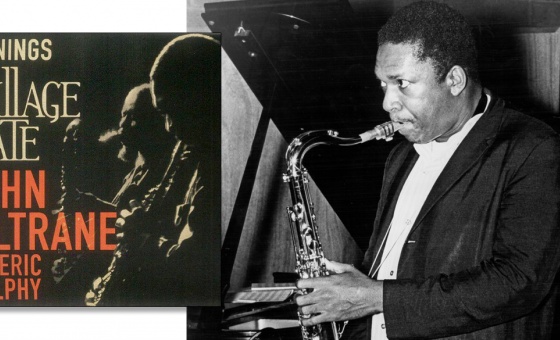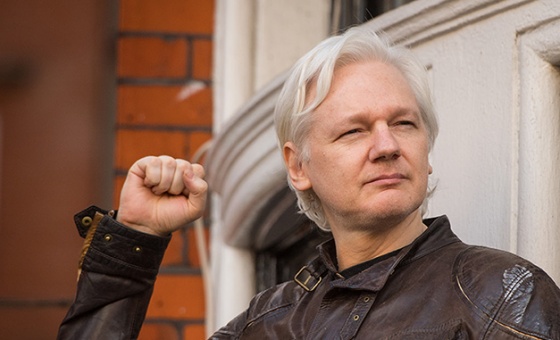This is the last article you can read this month
You can read more article this month
You can read more articles this month
Sorry your limit is up for this month
Reset on:
Please help support the Morning Star by subscribing here
THERE’S no doubt we are living in dangerous times — when the media routinely discusses the possibility of World War Three, something is going very badly wrong.
But we are also living in a time of great opportunity, and nowhere are these contradictions more starkly posed than in the struggle against nuclear weapons and war.
We have all been horrified by the aggressive rhetoric from US President Donald Trump and his North Korean counterpart Kim Jong Un — and the possibility of the war of words turning into catastrophic nuclear use.
But at the same time we have seen a huge step forward internationally, with the adoption by the United Nations of a global nuclear weapons ban treaty.
The news just in, that nuclear disarmament campaigners have been awarded this year’s Nobel Peace Prize, serves to highlight that polarisation, between confrontation on the one hand and co-operation on the other.
In fact, the global stand-off over nuclear weapons reminds me of the importance of the slogan popularised by Labour leader Jeremy Corbyn — “For the many, not the few.”
On so many fronts a small elite attempts to control the lives of the overwhelming majority, whether it’s our health, our homes, our jobs, our education, our care in our older years.
A tiny minority assumes the right to constrain us, to impose upon us, and to prevent our will from prevailing. This is very clearly mirrored internationally, in the global debate over nuclear weapons.
Nine states — including Britain — insist on retaining nuclear weapons, while almost 200 want rid of them. A small, powerful and irresponsible club holds the threat of nuclear annihilation over all our heads.
So it’s absolutely time that the will of the majority should prevail, whether it’s against nuclear weapons, war or austerity.
We have seen in our own country, throughout this century, how successive governments have been out of step with the majority of the population on pretty much all issues of war and peace, pursuing military intervention and Trident replacement, when the majority of the population has opposed both.
To those we can now add massive public concern about arms sales to repressive regimes. The time for peace, justice and equality is well overdue and the struggle for these principles — to make them a reality — is intensifying on all fronts.
And CND has a big contribution to make, not just in Britain, but internationally. As an organisation we have always prioritised international solidarity and co-operation, and our role in global movements, whether nuclear weapons or the related and destabilising threats from Nato and missile defence, is an important one.
So in this “time of Trump” we are convening an international conference to bring activists together to discuss the key challenges to world peace — and how to resolve them.
Many longstanding activists will know Joseph Gerson, from the American Friends Service Committee. He will be joining us to share analysis and experience of the latest developments in the USA.
Reiner Braun, from the movement in Germany, will be assessing the impact of the German election on European politics and what that means for relations with Russia.
Lindsey German from the Stop the War Coalition will share strategic analysis of the developing cold war with Russia, and Dave Webb will explore the role of so-called missile “defence” whether in Europe, or the newly placed Thaad in South Korea.
These are crucial areas for our campaigning, and it’s important that attention doesn’t concentrate entirely on the Korean question, because prior to the provocative impact of the latest Trump rhetoric, there have been a number of occasions over the past decade or so when a new cold war has been spoken about, and it has been in relation to Russia.
The tension over Crimea is one, and the earlier conflict over Georgia is another. However, closer scrutiny shows long-running factors at play which have not only prevented the development of positive relations between the West and Russia, but have had an actively deleterious effect.
Nato expansion is one, as Russia sees itself increasingly surrounded by US and Nato bases. And Nato has recently exacerbated the situation by announcing new bases in eastern Europe.
But its expansion isn’t the only long running problem which contributes to tension and arms build-ups between Russia and Nato states.
While less well known, the impact of the US and now Nato development of missile defence systems has long been a provocative obstacle to improved relations.
Indeed, US insistence on the system has led to the production of new Russian missiles, intended to be capable of busting the missile defence system, as well as obstructing further US/Russian bilateral warhead reductions.
When the New Strategic Arms Reduction Treaty was ratified in 2011 a collective sigh of relief was heard, because the process following former US president Barack Obama and Russian Prime Minister Dmitry Medvedev agreeing to the principle in Prague in April 2009 was more fraught than had been anticipated.
The issue which loomed continually over Treaty progress was the US missile defence system. Russia has been consistently opposed to the system, designed to shoot down incoming missiles, thereby allowing one country to attack another without fear of retaliation.
The US administration insisted that the system was designed to counter threats from Iran, but its continued refusal to accept Russian offers of co-operation reinforced widespread views that Russia was actually the target. That assumption remains today and shapes much of the defence perspective of Russia.
Of course, no contemporary discussion would be complete without a detailed assessment of the situation of the Korean peninsula and we will be joined by two great experts, Jenny Clegg and Jude Woodward whose new book The US vs China: Asia’s new cold war? will be available.
We will address the details of the current crisis as well as its longer roots — former US president George W Bush naming North Korea as a part of the “Axis of Evil” — and the bigger picture of the US’s “Pivot to Asia” policy.
Other sessions will look at how we challenge the rise of militarism and nationalism — disastrous developments that blight people’s lives on an increasing basis, particularly with the rise of the far right, in Europe and beyond; and what discussion of security would be complete these days without discussing the climate, environment and resource wars?
We will be joined by Nick Dearden from Global Justice Now and Dr Stuart Parkinson from Scientists for Global Responsibility, who will bring us up to speed with the latest developments for the future of our planet.
There is much to discuss and plan to bring closer our goal of a nuclear-free, more peaceful world and we hope you will join us.
All are welcome to participate at CND’s international conference: Confrontation or Co-operation? Nuclear abolition in dangerous times Saturday October 14 from 10am to 5pm at the Arlington Conference Centre, 220 Arlington Road, London NW1 7HE.
Admission is free.
Kate Hudson is general secretary of the Campaign for Nuclear Disarmament.










